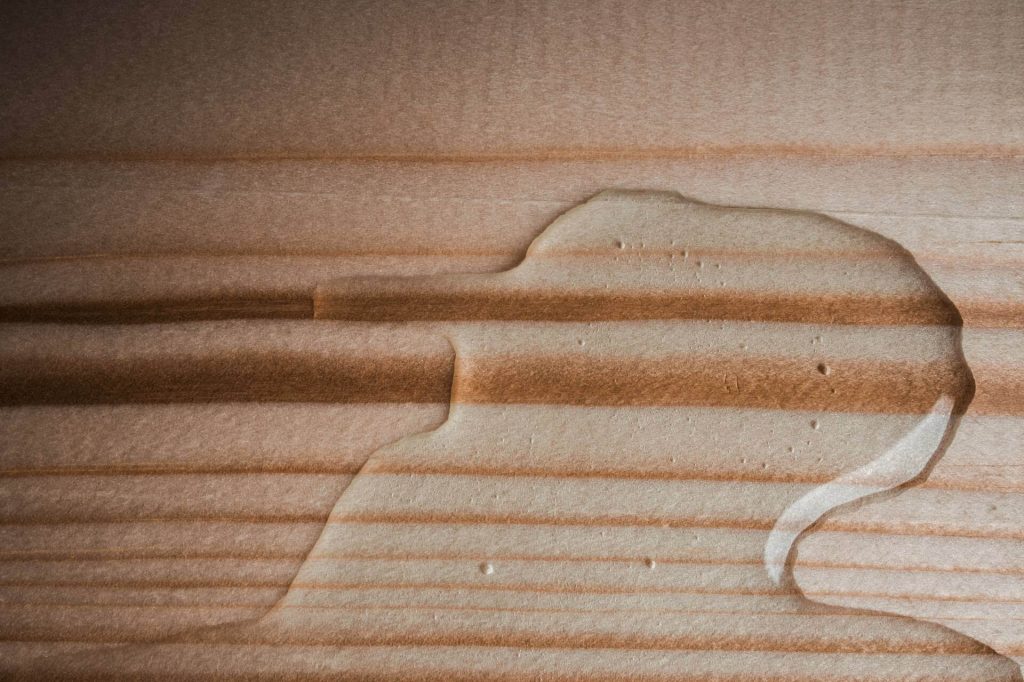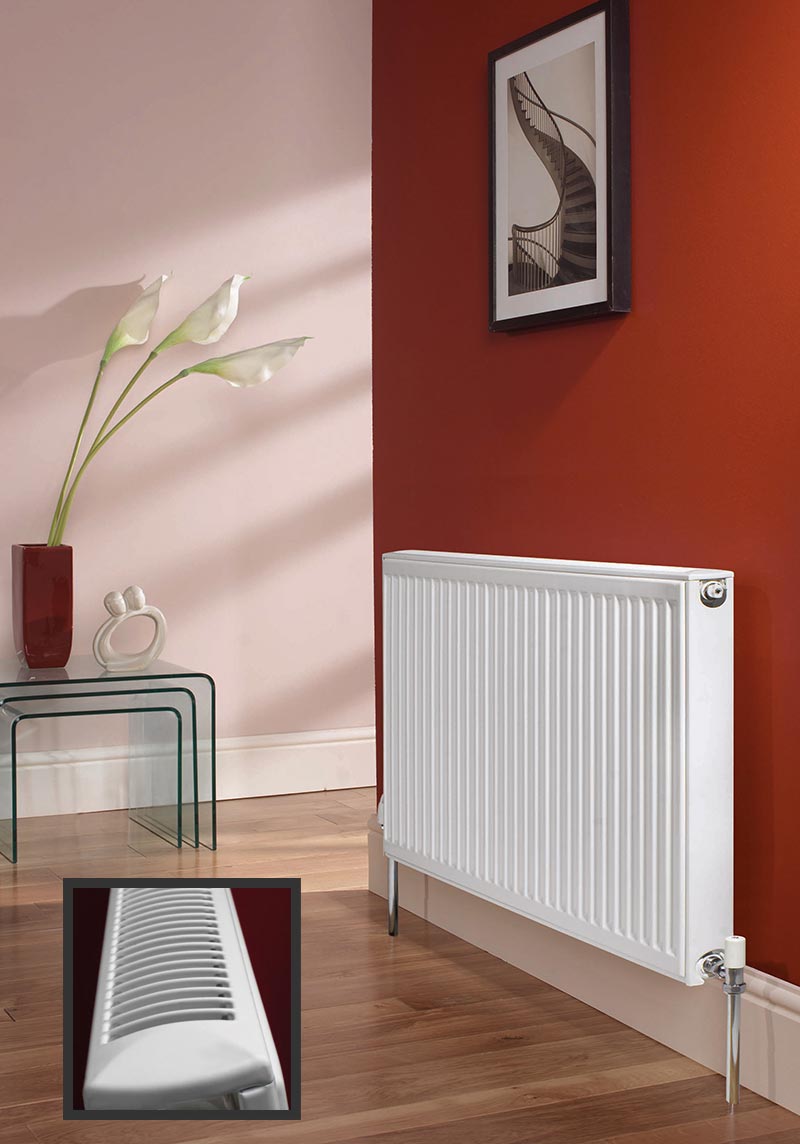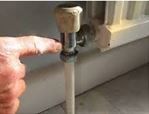Is your Radiator Leaking?

If you notice water on the floors near your central heating system, that’s a sure sign that your radiator is leaking. Do not ignore this! Leaks tend to become bigger, causing more leakage and water damage.
One of the biggest issues with standing water is that it can lead to mold and mildew within just a few hours. Another major issue is flooding, which poses risks to your belongings and your property.
Shut down the radiator valves right away.
Common Radiator Leaking Problems
The most common radiator leaking issues we see, is when the nut under the radiator valve springs a leak. Our technicians can easily fix it by nipping up the nut. You should not do it yourself. Overtightening, might damage the olive inside the nut. Breaking the olive inside the nut can cause you more damages and at that point you will need to call an emergency plumber to drain the system and fix the leak.
You are best not to play and touch your radiator valve. It’s advised not to adjust on and off on radiator valve. Don’t play with it – it can break off and cause a flood.
The first step to take when you notice that your radiator leaking is to call Hoerner Heating & Plumbing. We will ensure to close the isolated shut off valve / thermostatic radiator valve (TRV) properly. This self-regulating valve controls the temperature in the rooms. It changes the flow of hot water to the radiator.
Fix a Radiator Leaking
Small mistakes can cause big mishaps, especially if you misdiagnose the cause of a leaking radiator. That’s why it’s never a good idea to try to fix it yourself, even if you’re a DIY expert.
Only professionally qualified plumbers should diagnose and fix leaks. After turning of the isolated shut off valve and the thermostatic radiator valve, he will leave it to cool. Once the pressure has been relieved, he will remove the radiator according to the instructions provided by the manufacturer. Then he will install a new valve.
Most radiator manufacturers recommend regular maintenance as an important step to preventing emergency radiator callouts.
- Are your rads leaking?
- Is your rad valve broken?
- Is the heat balanced throughout your home?
If you answered yes to any of these questions you may need new rad valves.
CALL NOW to find out our latest deals on Radiator Valve Replacement!
How to Fix Radiator Leak & Similar Problems?

The first signs of a radiator leak on your central heating system, is water on the floors. If you ignore the leak for too long, it will get bigger and it could cause water damage in your home. Standing water causes mildew and mold in a matter of hours. Once the leak becomes bigger, it can lead to flooding, which may damage your property and belongings.
Your best bet is to stop the water as soon as possible, by shutting the valve. When talking about radiator valves, we distinguish between two types:
- Isolated Shut Off Valve
- Thermostatic Radiator Valve (TRV)
But what do you do to fix a radiator leak?
Without fail, whenever we get a call to fix radiator valve issues, it is because there’s a leak in the nut under the radiator valve. This can usually be fixed by nipping up the nut. However, overtightening can actually break the olive inside the nut, in which case you will need to get hold of an emergency plumber as soon as possible. When that happens, your plumber will have to drain the central heating in order to fix the leak.
Most often, when there’s a radiator leak, it is because the radiator valve is broken, in which case you need to have it replaced. But first, you need to stop the water from dripping (or worse – gushing) and damaging your property, including your carpets and electrics.
Step 1 to Fix Radiator Leaks: Close the Isolated Shut Off Valve
If you spot a leak on your radiator valves, you need to close the isolated shut off valve right away.

The thermostatic radiator valve (TRV) is a self-regulating valve fitted to hot water heating system radiator, to control the temperature of a room by changing the flow of hot water to the radiator. If your radiator has sprung a leak, you need to close the TRV as well.
Step 2 to Fix Radiator Leaks: Call a Plumber
Even DIY-experienced homeowners should not attempt to fix radiator leaks. A misdiagnosis of the radiator leak or a small mistake can cause major hassles.
A professionally qualified plumber will use the correct methods to detect the leak and find its source. He will first turn off the isolated shut off valve in radiator and the thermostatic radiator valve and then allow it to cool down before handling the radiators.
After relieving the pressure, he will remove the radiator according to the manufacturer’s instructions and install a new radiator valve.
Radiator maintenance is an important step in preventing calls to the professionals to fix radiator leaks. Get in touch with Hoerner Heating & Plumbing to find out more about our radiat
